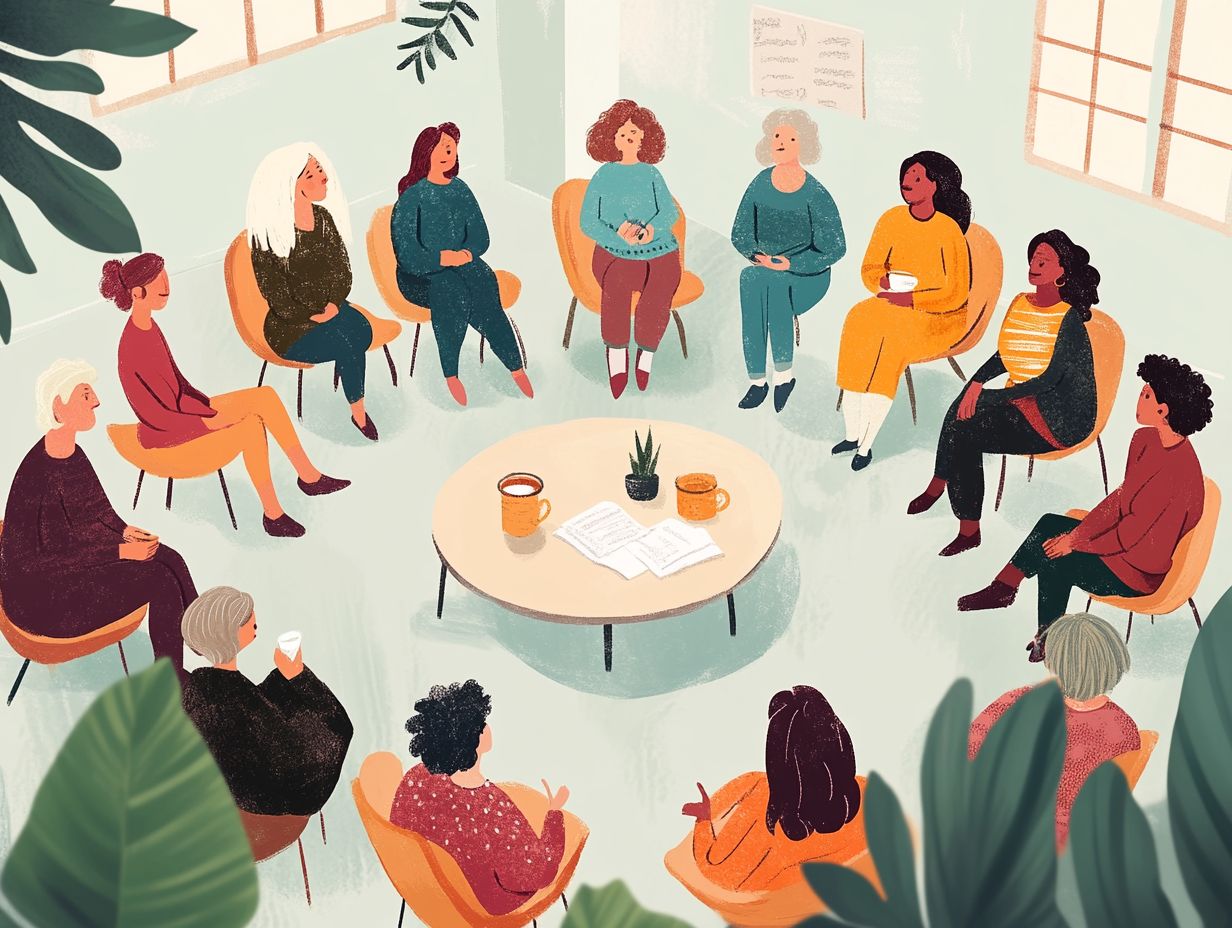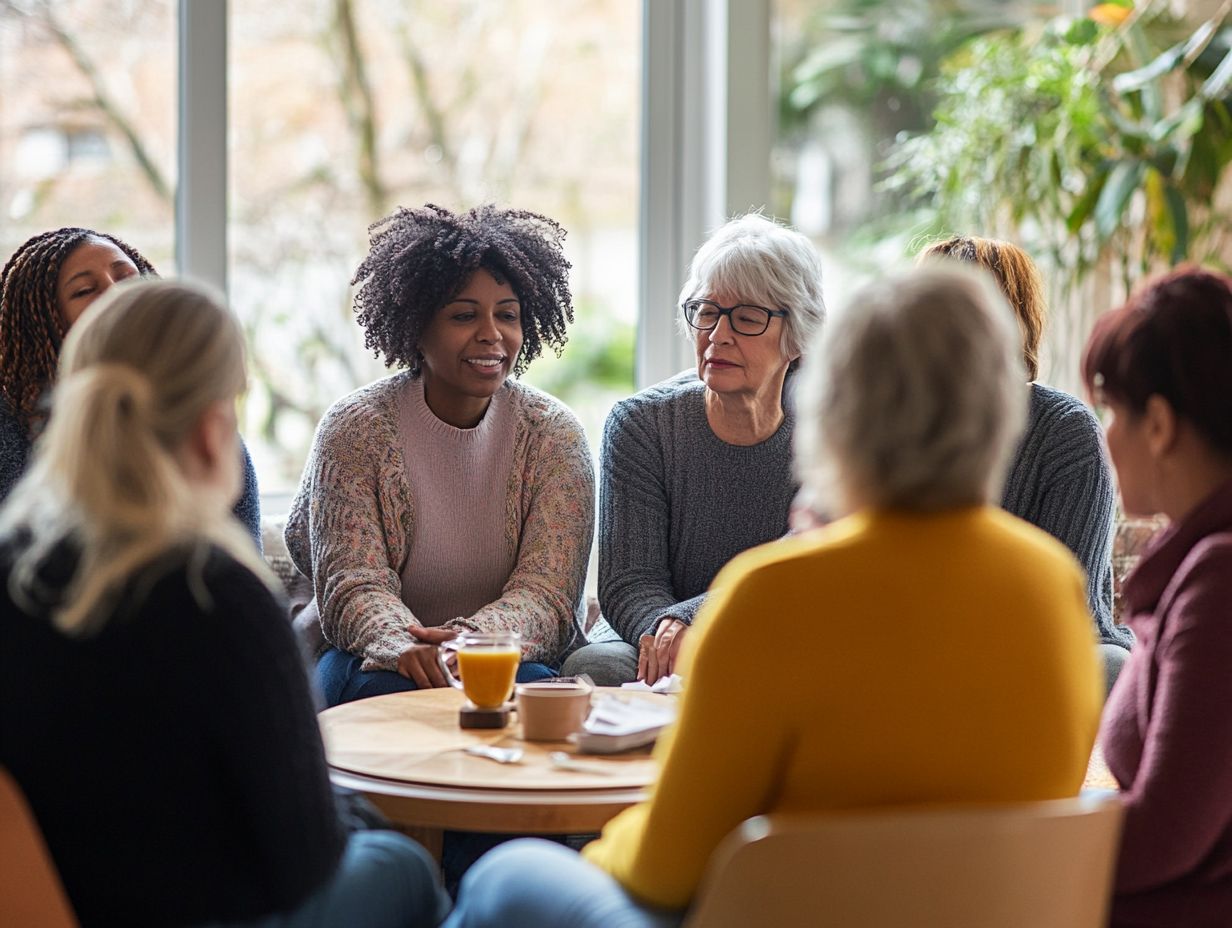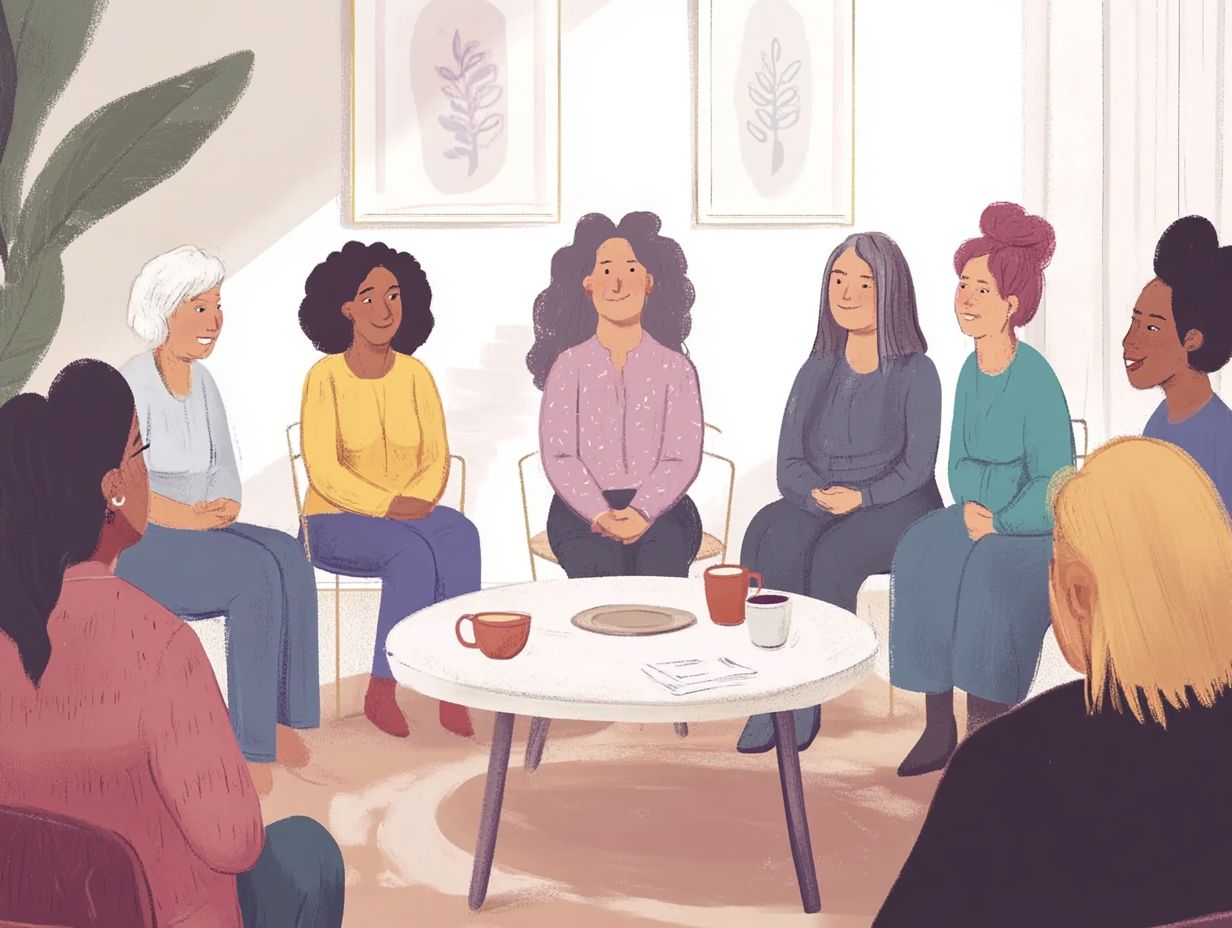Caregivers of survivors play a pivotal role in providing essential support that enhances the health and well-being of those they assist. Their responsibilities encompass offering physical care, emotional support, non-medical care, and social assistance, making them integral to the recovery process of survivors. In addition, caregiver support groups can provide a valuable network for sharing experiences and resources.
Caregiving, however, comes with challenges, including emotional strain and burnout, which underscore the importance of having robust support systems. These systems can include:
- Formal support groups, including peer-led groups such as those provided by the Alzheimer’s Association
- Professional services such as skilled and respite care, and home care options like Meals on Wheels
- Informal networks comprising friends, family, and online support groups
Additionally, self-care is crucial for caregivers to sustain their caregiving abilities and maintain their mental well-being. Strategies like setting boundaries, engaging in regular exercise, participating in support groups, and accessing caregiver resources can significantly enhance their quality of life.
Understanding and implementing these support mechanisms not only aids in managing caregiving stress but also fosters a nurturing environment for both caregivers and survivors alike.
Key Takeaways:
The Role of Caregivers in Survivor Support

The role of caregivers in survivor support involves providing physical care, emotional support, and social assistance to enhance survivors’ health and well-being. Caregiving relationships are vital in managing the health impacts of traumatic events.
Caregivers help survivors navigate health impacts by offering guidance, fostering supportive environments, and utilizing available caregiver assistance like professional caregivers and community resources.
Effective caregiver support is crucial for survivor recovery and well-being.
Understanding the Importance of Caregivers
Caregivers provide essential non-medical support, addressing the practical and emotional needs of those they care for. This includes accessing caregiver resources and services such as caregiver training and education provided by organizations like the Family Caregiver Alliance.
The importance of caregivers lies in enhancing recipients’ quality of life and emotional well-being.
Caregivers face challenges like burnout and financial strain, which highlights the need for self-care and robust support networks, including social support and volunteering opportunities to build caregiver connections.
Challenges Faced by Caregivers
Caregivers face challenges including emotional strain, high stress levels, and a lack of emotional support.
These challenges can lead to caregiving burden, impacting the mental health and emotional well-being of caregivers, often requiring intervention from healthcare professionals and sympathetic communities.
Understanding caregiver challenges is crucial for developing coping strategies to alleviate the burden.
Common Difficulties and Stressors
Common difficulties and stressors faced by caregivers include financial pressures, time constraints, and emotional strain from caregiving responsibilities.
Caregivers often experience stress from juggling multiple roles, leading to isolation and fatigue.
Lack of a reliable support system can intensify feelings of being overwhelmed.
Providing emotional support and resources such as caregiver education and financial aid from programs like the RAISE Act can help caregivers manage stress and improve their well-being.
Types of Support Systems for Caregivers

Support systems for caregivers include formal support groups, online support communities, local resources, and caregiver assistance from organizations like the Area Agency on Aging and community action initiatives.
-
Formal support groups provide peer support, community education, and opportunities for caregivers to engage with peer-led groups like those offered by the AARP and Caregiver Action Network.
-
Online support communities offer virtual connections for sharing experiences and advice.
-
Local resources assist caregivers with practical help and information in their community.
Professional Support Options
Professional support options for caregivers include skilled care services and respite care.
Skilled care services provide trained professionals to meet the needs of individuals requiring care, allowing family caregivers to take necessary breaks.
Respite care offers temporary relief for family caregivers to manage their well-being.
Coordination with healthcare professionals and accessing community resources enhance care quality, addressing caregiver needs and family dynamics.
Informal Support from Friends and Family
Informal support from friends and family provides essential assistance and emotional support to caregivers. This support includes help with transportation services, caregiving tasks, and emotional encouragement, often amplified by community resources and family care networks.
Community action and local organizations can enhance these informal networks, offering additional resources like workshops and respite care services.
Such support helps caregivers manage responsibilities better and improves their well-being.
Self-Care for Caregivers
Self-care for caregivers involves practices that maintain their physical and emotional well-being while caring for others.
- Effective self-care strategies include setting boundaries.
- Taking regular breaks.
- Seeking support.
- Engaging in healthy activities.
Self-care helps caregivers manage stress, prevent burnout, and sustain their caregiving abilities. Engaging in caregiver space creation and participating in caregiving experience sharing through online forums can boost mental well-being.
Importance of Self-Care

Self-care is essential for caregivers to maintain mental well-being and care capability.
Self-care practices, such as:
- Regular exercise
- Mindfulness meditation
- A healthy diet
enhance emotional resilience and prevent burnout.
Social interactions, peer support, and participating in community action improve caregivers’ sense of community and well-being, especially within the aging population.
Prioritizing self-care improves caregivers’ quality of life and caregiving ability.
Practical Tips for Self-Care
Practical self-care tips include setting boundaries, engaging in hobbies, seeking peer support, and leveraging caregiver education and training programs to enhance emotional well-being.
Create a personal space at home for relaxation to foster calm.
Use resources like support groups and therapy to share experiences.
Incorporate mindfulness practices and physical activity to boost mood and resilience.
Frequently Asked Questions
What are support systems for caregivers of survivors?
Support systems for caregivers of survivors are resources and networks that provide emotional, physical, and practical support to those who care for individuals who have survived a traumatic event or illness. These can include support from the National Institute of Aging, Medicare, and community resources like Jewish Family Services and Catholic Family Services.
Why are support systems important for caregivers of survivors?

Support systems are important for caregivers of survivors because they can help alleviate the stress and burden of caregiving, provide a sense of community and understanding, and offer valuable resources and information, including caregiver support options from organizations like the American Heart Association.
What types of support systems are available for caregivers of survivors?
There are a variety of support systems available for caregivers of survivors, including support groups, online forums such as those on Caring.com, counseling services, adult day care, respite care, and educational programs offered by the CDC and other health organizations.
How can caregivers of survivors find support systems?
Caregivers of survivors can find support systems through their healthcare provider, local hospitals or organizations like Muslim Family Services, online resources, or by reaching out to other caregivers in similar situations, especially through platforms like Online Support Groups.
What are the benefits of joining a support system for caregivers of survivors?
Joining a support system for caregivers of survivors can provide a sense of community, reduce feelings of isolation, offer emotional support and guidance, and help caregivers develop coping strategies such as those promoted by the Caregiver Action Network and other caregiver-focused initiatives.
Are there any financial support systems specifically for caregivers of survivors?
Yes, there are financial support systems available for caregivers of survivors, such as government programs, non-profit organizations, and financial aid for respite care or other expenses related to caregiving. These include support from the AARP and specific caregiver financial assistance programs.





